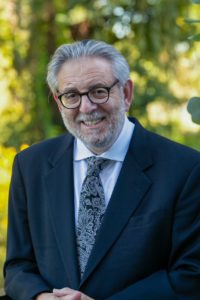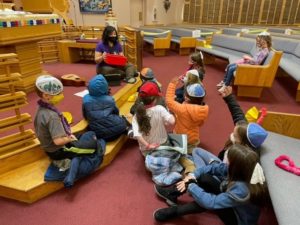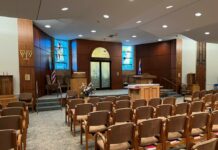Ohev Shalom of Bucks County opened in 1976 — just as Jews were moving to the area — and, in that time, it has reflected the evolution of the area’s Jewish community.
From the mid-1970s through the ’90s, the Conservative synagogue grew from 25 founding families to more than 700 members, as baby boomers sought a place to attend High Holiday services and for their children to attend preschool and religious school. But since the late ’90s, Ohev’s membership has declined to about 425 families.
Yet in many ways for this Richboro community, less is more. Today’s congregants are not, on average, joining for their kids to have a place to grow up Jewish, as Ohev only holds 15-20 bar and bat mitzvahs a year, compared to three or four on a given weekend a few decades ago.
Instead, they are joining so they can have a place to practice Judaism and come together in community.
Executive Director Barbara Glickman recently started a walking club in a local park. It’s the first lifestyle-type club in the 46-year history of the temple, according to Rabbi Eliott Perlstein, who has been with the synagogue since the beginning.
And more of those types of activities may follow. Glickman wants to open a yoga club. Perlstein may ask congregants if they are interested in doing Torah study in the park.
“We’ve become a boutique synagogue,” the rabbi said.

Perlstein and other Ohev leaders saw the change coming as far back as 2016 when they decided to change their financial model. For decades, like many other Conservative and Reform shuls in the Philadelphia area, Ohev operated on a hierarchical system for paying dues.
Essentially, if you paid X amount, you became a member. But the financial transaction came first and foremost.
In 2016, though, Perlstein and his team decided to let families join without paying anything. They could put their children through religious school from ages 4-7 and still not pay a dime. At that point, if they wanted to join, they could start paying dues.
“Would families want to be members when the time came?” Perlstein asked.
The answer was pretty much “yes.” Perlstein said the retention rate for such members is more than 90%. Once they joined and became part of the community, they wanted to stay.
Ohev’s membership was stagnant before it changed its payment plan, according to Perlstein. Since then, the synagogue has attracted new members who may not have joined otherwise.
The rabbi disputes the notion that millennials are not interested in joining things. He said synagogues just need to meet them where they are.
“They hear that there’s a synagogue interested in reaching out to people, and it’s not all about the bottom line,” the rabbi said.
To be clear, Ohev’s bottom line is still pretty strong.
Perlstein described a membership of more than 400 families as “relatively large.” Ohev also has more than 100 students in its religious school, though it no longer offers a preschool. And while the bar and bat mitzvah schedule is not as busy as it once was, there is still more than one a month.
As it approaches its 50th anniversary, Ohev remains a functional and well-adapted institution. Perlstein, Glickman and Cantor Annelise Ocanto-Romo believe the temple’s
values are to thank for its ability to survive.
No matter what may be going on outside its doors, the Richboro congregation takes the same approach to growing with the times. Perlstein describes it as tradition plus creativity.
A continued emphasis on Conservative elements of Judaism like Kashrut and the Conservative prayer book combines with a consistent willingness to embrace change, such as allowing girls to have bat mitzvahs on Shabbat morning, which Ohev started as soon as it opened, unlike other Conservative synagogues of the day.
“We started off with full equality,” Perlstein said.
Glickman joined Ohev in 1999 because she was looking for a preschool for her children. Ocanto-Romo took on her role in 2015 after serving at a synagogue in Worcester, Massachusetts.

Both spoke of the same feeling when they first walked in and started engaging in temple activities.
“Everybody was super welcoming and very friendly,” Glickman said.
“I just felt the warmth,” Ocanto-Romo added.
So did her husband, a Jew by choice.
“Ohev was inviting him to come,” the cantor said.
Ocanto-Romo runs the bar and bat mitzvah tutoring program at the synagogue and, in her role, led another important change for the Conservative community — allowing non-Jewish parents to stand on the bimah next to their Jewish spouses during their children’s bar and bat mitzvahs.
“The cantor is right,” Perlstein said. “It’s a very major change.” JE






